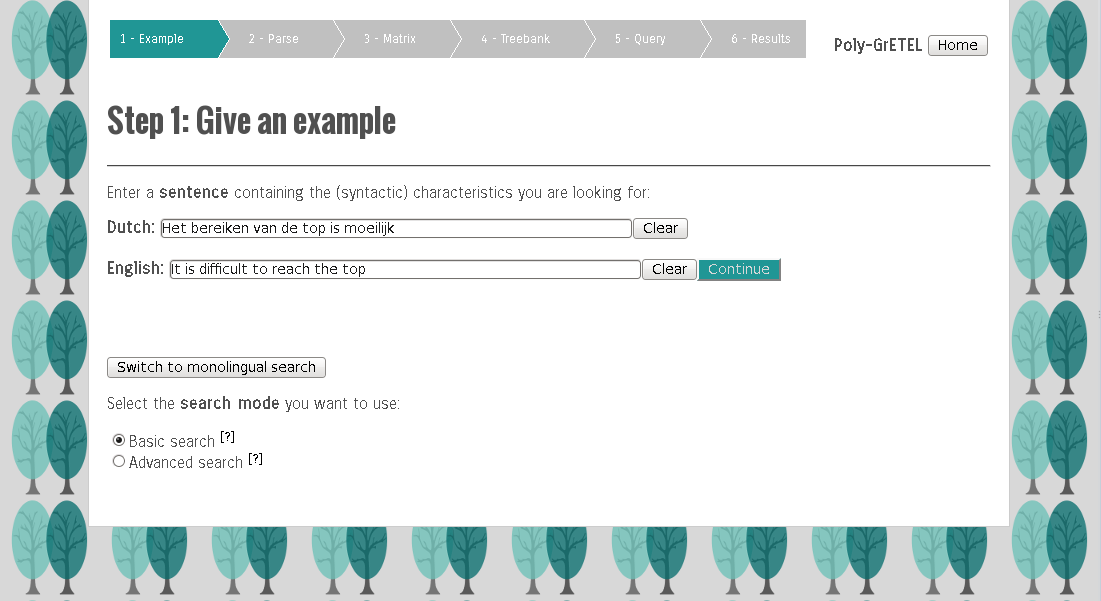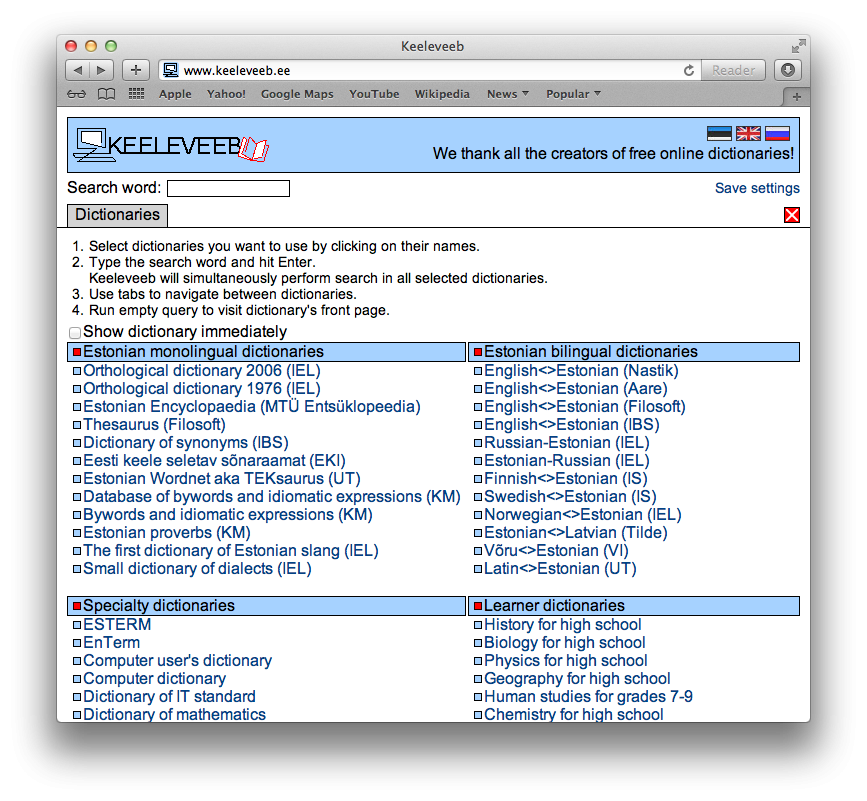Poly-GrETEL Search Engine for Querying Syntactic Constructions in Parallel Treebanks

Poly-GrETEL is an online tool which enables syntactic querying in parallel treebanks. It is based on the monolingual GrETEL environment (http://gretel.ccl.kuleuven.be/gretel-2.0). It provides online access to the Europarl parallel treebank for Dutch and English, allowing users to query the treebank using either an XPath expression or an example sentence in order to look for similar constructions. By combining the example-based query functionality with node alignments, Poly-GrETEL omits the need for users to be familiar with the query language and the structure of the trees in the source and target language, thus facilitating the use of parallel corpora for comparative linguistics and translation studies.
Languages covered
Dutch, English
Keywords
Linguistics, syntax, morpho-syntax, translation studies, comparative linguistics
Poly-GrETEL is developed in the context of the SCATE project (Smart Computer Aided Translation Environment), funded by the Flemish Agency for Innovation through Science and Technology (IWT).
